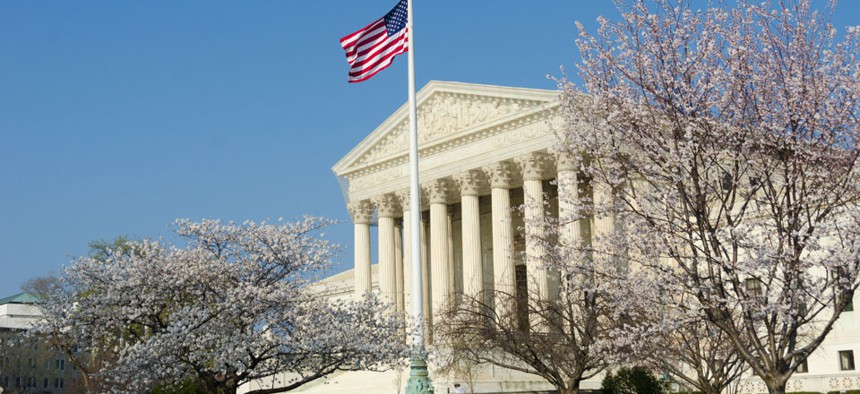
Orhan Cam/Shutterstock.com
The Supreme Court Could Limit Obama's Executive Action Where It Matters Most: Climate Change
The question at stake is whether the EPA has the right to consider greenhouse gas emissions in industrial permits, and if it has the right to change the levels of pollution that it would allow.
Perhaps the unluckiest people in American politics are those battling climate change. On Monday, they will join allies at the Supreme Court to fight for an aspect of the EPA's ability to regulate greenhouse gas emissions precisely at the moment that the national political debate has become focused on President Obama's use of his executive authority — like EPA regulations. For many reasons, the timing couldn't be worse.
The case at hand, Utility Air Regulatory Group v. EPA, is complicated, so a quick primer is in order. The question at stake is whether the EPA has the right to consider greenhouse gas emissions in industrial permits, and if it has the right to change the levels of pollution that it would allow.
In Massachusetts v. the United States in 2007, the Supreme Court determined that greenhouse gasses, like carbon dioxide, are pollutants, which, under the Clean Air Act, the EPA has the authority to regulate. But the agency has dragged its feet on regulating carbon emissions, in part because such regulations are tricky to develop and in part because there hasn't been much political will to do so. One aspect of that regulation involves taking greenhouse gas pollution into consideration when the EPA grants upgrade permits. Want to build out your power plant? Under the authority of that 2007 decision, the EPA can also require you to reduce your carbon emissions.
(Image via Orhan Cam/Shutterstock.com)
NEXT STORY: Who Owns Weather, the Feds or the States?







